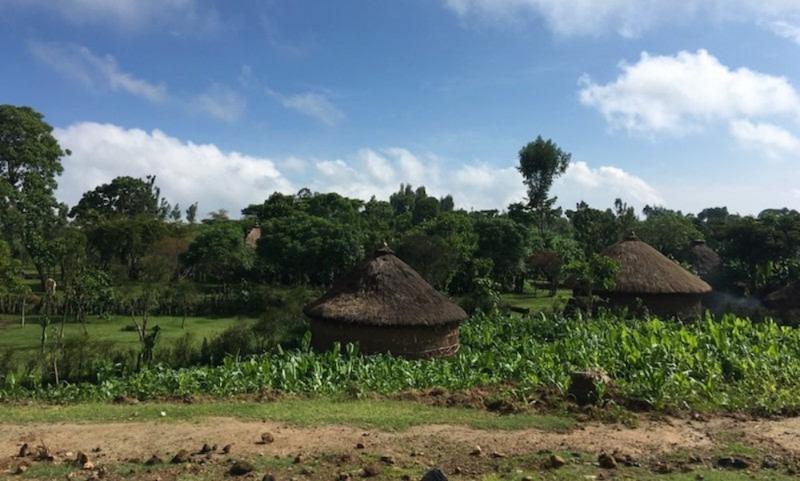How can farmers in Ethiopia withstand the effects of climate change?

As global temperatures rise, the delicate balance which has allowed Ethiopian crop farmers to feed their families year-round is being disrupted. Scientists from Queen Mary, the University of Greenwich and Kew Gardens visited the region to learn more about how local crops exist in their current environment, and to see how farmers could adapt their processes to better withstand the effects of climate change.
The challenge
Over thousands of years, farmers in the southern Ethiopian highlands have developed unique cropping methods which allow them to ensure food all year round for their families. They grow a complex mix of annual and perennial plants and the landscape is able to support a dense population. This region has not experienced famine in living memory.
However, as temperatures rise as a result of global climate change, the viability of some crops is being affected in parts of the southern highlands. Ethiopia’s mean annual temperature increased by 1.3°C between 1960 and 2006 and is projected to increase by up to 3.1°C by the 2060s.
How did we work with our partners to solve the problem?
Kew scientists and collaborators from the University of Greenwich and Queen Mary visited the region to learn more about current processes and crops, and to find ways to mitigate the effects of climate change. The project is funded by the UKRI Biotechnology and Biological Sciences Research Council and The Global Challenges Research Fund (GCRF), a £1.5 billion fund that supports cutting-edge research to address challenges faced by developing countries.
In Ethiopia, the team met with partners from Addis Ababa University, Hawassa University and the Ethiopian Biodiversity Institute. The meeting was opened by Ato Ayano Beraso, President of Hawassa University, and was attended by many Ethiopian scientists working on southern Ethiopian agri-systems, whose work has laid the essential foundations for the new project.
The outcome
The project team conducted some practice interviews to inform a strategy for efficient data collection and a realistic experimental design.
This project will continue.
- Interviews with farmers will document what species and varieties of crops they grow
- Soils will be analysed to understand how their quality is affected by the different cropping regimes on different farms.
- The project will also examine genetic variation of the ten crop species, seeking to understand how some of this is adaptive to local environments
This may allow scientists to project which crops and varieties will do best in different areas under climate change.